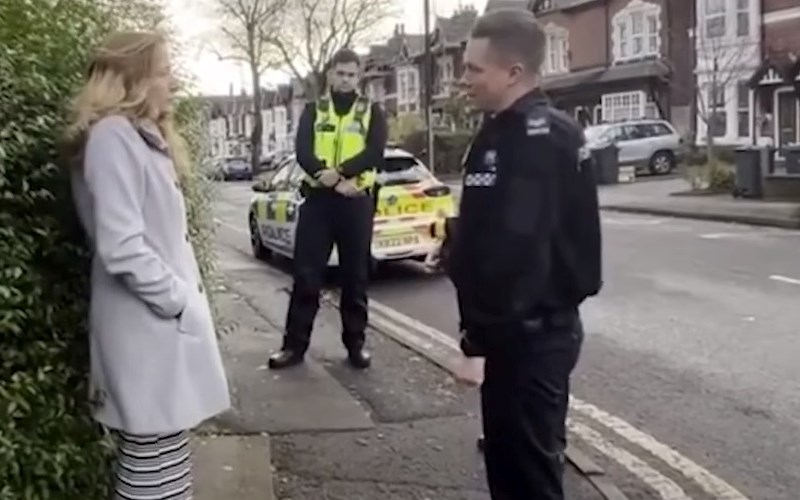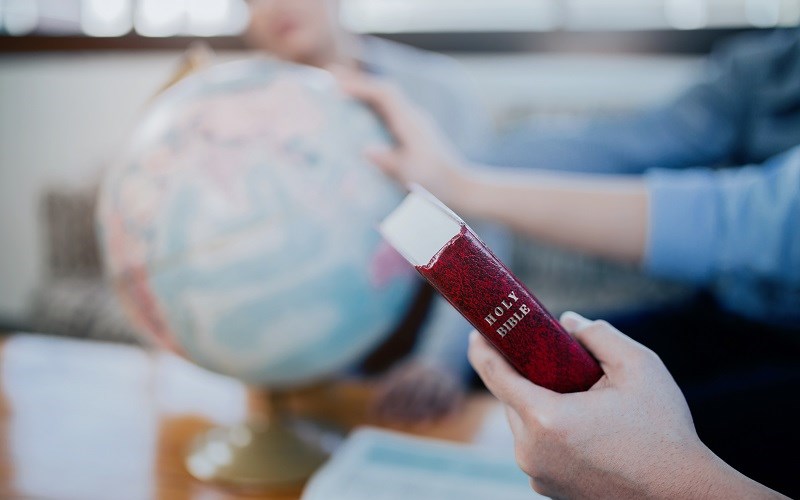Freedom of thought, belief and religion are protected in Great Britain under the Human Rights Act of 1998, but the legal fight comes from local ordinances known as PSPOs that are designed to squelch what authorities define as “nuisance” behavior in public spaces.
“The PSPOs are intended to deal with a particular nuisance in a defined public space where the nuisance behavior is having a negative impact on the quality of life for those in that public space,” according to a government website.
In addition to violence and physical disruption, the Kings Norton PSPO in Birmingham, England in relation to abortion clinics prohibits “engaging in any act of approval or disapproval or attempted act of approval or disapproval through verbal or written means, prayer or counseling.”
The presence of Isabel Vaughan-Spruce outside the BPAS Robert Clinic was not in and of itself a crime but praying while standing there was indeed a crime. Even praying silently while the clinic was closed was punished.
West Midland Police last week dropped the charges against Vaughn-Spruce but only after a six-month investigation, one that required legal action from Alliance Defending Freedom. ADF's help resulted in a reduction of bail restrictions that prohibited Vaughn-Spruce from entering a radius that was larger than the buffer zone detailed in the local ordinance.
Police offered an apology for the length of their investigation but not for their wrongful arrest.
“There was an apology given for the length of time that it took to reach them to get to this conclusion," ADF attorney Lois McLatchie said on Washington Watch Friday. "They took six months and they had initially imposed quite restrictive bail conditions on Isabel. They were later dropped, but as I said, six months is a very long time to be waiting to hear about whether you're going to face trial.
"We’re hoping for the government to release guidance that makes it very much clear to police that freedom of thought is protected in the UK. There is no crime such as silent prayer. We’re hoping the government will clarify that as soon as possible,” McLatchie told show host Joseph Backholm.
'Well then, you're under arrest'
For Vaughan-Spruce, the arrest was actually the second on the same charge. She was originally taken into police custody in November of 2022, surrendering peacefully in an arrest video that went viral.
The arresting police officer obviously had no way of knowing what was going on inside Vaughan-Spruce’s head while she stood on a sidewalk across from the clinic in a non-threatening manner. He asked if she was praying and she responded that she “might be.”
“Well then, you’re under arrest,” the officer responded.
Vaughan-Spruce, the director of UK March for Life and for many years a volunteer in support of women in crisis pregnancies, was found not guilty in February of 2023. Her second arrest came just weeks later.
“We’re actually defending more than one person for this thought crime of praying outside an abortion facility, and we want this to end,” McLatchie said.
That may be difficult given current levels of officer training.
A March report by the British nonpartisan group Free Speech Union concluded that 78% of police forces who responded to requests for information provided no training – or inadequate training – on how to deal with free speech matters.
Confusion in the wording
Vague wording within the ordinances often contributes to the problem, McLatchie said.
This particular ordinance warns against working to “influence” those seeking clinic services. That means holding a sign or passing out educational literature would also be against the law.
“What does influence mean outside of a worship facility? Some people would say that means harassment and prevents anyone from committing violence or harassment outside the clinic. And we would say, ‘Well, that's great. Nobody wants to see anybody act with violence or harassment towards anyone,’ but with using words like ‘influence,’ what it means in reality is that things are banned that shouldn't be banned,” McLatchie said.
A favorable verdict or charges being dropped doesn’t wipe away months of angst and uncertainty. Vaughan-Spruce is considering legal action against the police.
“Bear in mind that Isabel has faced trial before for the same crime and was found innocent when she was simply praying in her head the first time outside that abortion facility," McLatchie said. "So we knew from the courts that this is not a crime. The police had to then take six months to decide again that this was not a crime."







